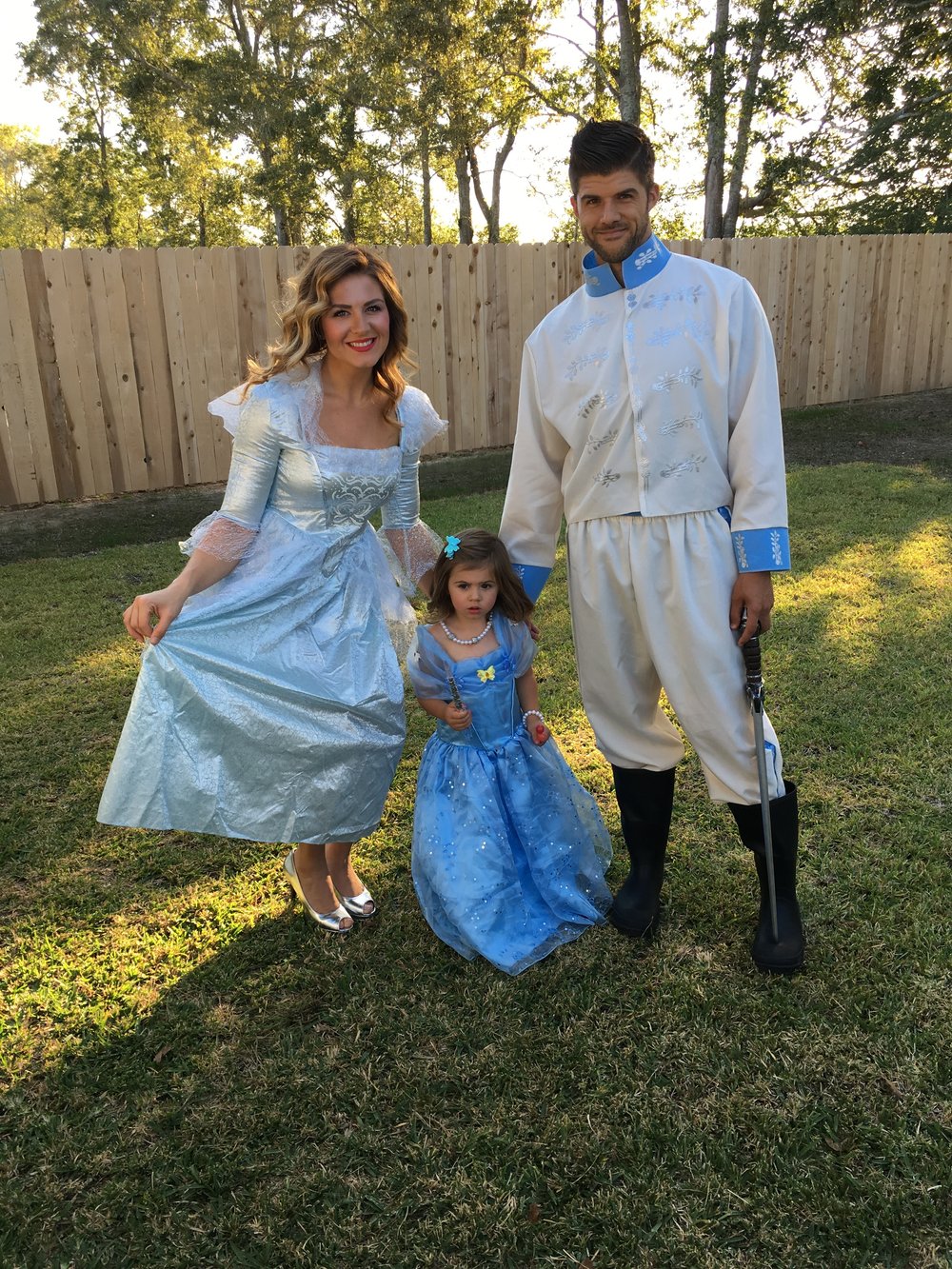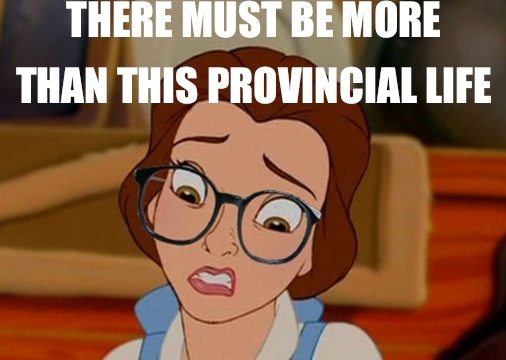.png)
“Tale as old as time… True as it can be…”
Okay, I admit that this theme is highly influenced by my 3 yr old and wife’s love of Disney movies. I, of course, only “put up” with them and always act negligibly interested:

“Negligibly….."
Yet, while the concept and approach to decreasing blood pressure is somewhat archaic and ineffective for our current American lifestyle, it certainly is no Disney fairy tale. And often, choosing to act negligibly interested in this silent killer, doesn’t end with “happily ever after” if left unmanaged.

Nope. Sorry, Belle. When one chooses America as their “Province”, it comes with certain health caveats.
But, before we get to managing blood pressure appropriately, let’s first touch on why it is important to know what your blood pressure is doing throughout the day.
1. It is supposed to fluctuate.
Often, we will hear conventional medical doctors discuss blood pressure as if it is some sort of static measurement that shouldn’t exceed the modernized <120/80 thresholds. Yet, it certainly depends on when you measure your blood pressure in regards to labeling it as “high”, “good”, “bad”, or “uncontrolled.”
For example:
If you are lying down for a nap while your kids play in the next room and you hear a glass break. If your blood pressure fails to rise as you rush off of the couch, you might experience a bit of light-headed, black patchiness prior to slamming your face on the kitchen floor due to “orthostatic hypotension.” That’s the result of your blood pressure failing to increase in order to acclimate to the emergency stimulus.
If you were to measure your blood pressure during intense exercise or during a recent window of time thereafter, you may be surprised to see how high your blood pressure is “at rest.” But, at this time specifically, “at rest” takes on a bit of a different meaning. During exercise, along with an increase in heart rate, the heart increases its force of contractility as well so that more blood can be pumped with each beat. This effect increases blood pressure. However, the blood vessels that supply your muscles dilate, or get larger, during exercise. This enables increased blood flow to your muscles without putting excessive pressure on your blood vessel walls. However, exercise still increases blood pressure, nonetheless. Going for a leisurely stroll after dinner to aid with digestion, expect your blood pressure to increase slightly and fall appropriately shortly after stopping your walk. On the flip side, go for an intense 5k run full of intervals, followed by a quick Crossfit WOD, expect your blood pressure to remain elevated for some time following as your body keeps your heart rate elevated in order to supply more oxygen and repair to the damaged muscles.
And just for simplicity’s sake, try measuring your blood pressure immediately upon waking. Then after you start reading emails and scrolling Facebook, then again after lunch, then finally around 7:00 pm at night. If those measurements are all exactly the same, gently place your phone on the counter, grab your keys, head to the closest gas station, and buy a lottery ticket. The Universe is smiling upon you.
But seriously, if your blood pressure is normal upon waking, but elevated after your workday, what is that telling you? It should be somewhat elevated in comparison to measuring after a night of restful sleep, but exceedingly high should alert you to your stress level.
2. Think twice before you medicate it
This is what blood pressure medication does to your actual blood pressure numbers:

No amount of makeup, curlers, or eyeliner is going to make that ugly thing, beautiful. Trying to change the number by simply taking a pill is an uphill battle. Eventually, you will need more medication to elicit the same effect on your blood pressure. Besides, do I really need to list out the side effects of most blood pressure medication?
I do? Okay:
- Dizziness.
- Weakness.
- Drowsiness or fatigue.
- Cold hands and feet.
- Dry mouth, skin, or eyes.
- Headache.
- Upset stomach.
- Diarrhea or constipation.
- Lightheadedness
- Low Blood Pressure
- Slower heart rate
- Swelling of feet ankles and legs
- Increased appetite.
- Gastroesophageal reflux disease (GERD)
- Tenderness or bleeding of the gums.
- Sexual dysfunction
You read that right: “Diarrhea OR Constipation.” They can’t even pinpoint what side effect is imminent, so they just threw both in there.
"I’ll definitely take diarrhea and sexual dysfunction over attempting to make lifestyle changes in order to lower my blood pressure,” said No One Ever! Gimme a break.
3. “So what can I do?”
First off, measure it more often than just when you go see your doctor. Have a clue about how your body reacts to specific stimuli prior to having someone, who doesn’t know your life or circumstances like you do, prescribe a laxative to lower your arterial pressure.
Secondly, figure out what is causing it. Are you noticeably stressed throughout the day? Then take some time to meditate or deep breathe. Are you drinking enough water throughout the day? Make sure you are at least taking in .5 oz for every 1 lb. of body weight. Still eating processed foods and sugary crap? Then, stop it. Stop for 21 days and measure your perceived stress and blood pressure along the way. See how that improves. Doing everything right and pristinely but you still can’t lower your blood pressure? Then have a micronutrient test performed and see where your deficiencies lie. Start filling your nutritional gaps as opposed to clinging to your Centrum Silver cardboard shield while your fire-breathing diet and lifestyle continue to burn right through it.
And finally, start increasing your consumption of nitric oxide containing/stimulating foods and supplements, such as beets, beet juice, or hibiscus tea. If you are currently dealing with blood sugar issues and don't want to exacerbate your diabetes with consuming high glycemic beets, then perhaps starting with a supplement prior to just taking a medication, such as CoQ10, Garlic, Magnesium, or Cod Liver Oil.
Deciding on which to start with is highly variable to your situation, history, genetic predisposition, and most of all, how you feel while taking it and how effective it is in lowering your numbers. Which requires proper, on-going measurement of it. (See how this all circulates?)
If blood pressure is an existing problem of yours, start owning it. Talk with your physician about more lifestyle medicine options or have them refer you to one.
If you don’t currently have blood pressure issues or think you are too young to have them, I implore you to start measuring it. At a worst, you will have a nice baseline for your practitioner. At best, you will be thrust into action by your disdain for the surprisingly high numbers that you see on the monitor. Despite which party you claim to belong to, if you want to experience the new “Healthcare” and collaborate on optimizing your total mental and physical wellbeing, (which includes effectively monitoring and measuring blood pressure) then sign up below.

.jpg)



